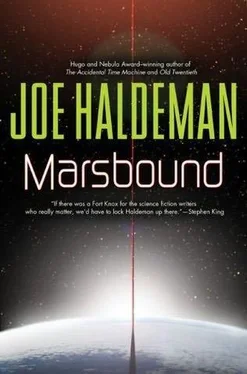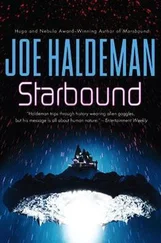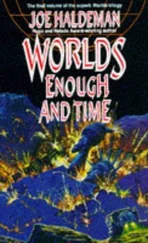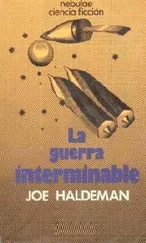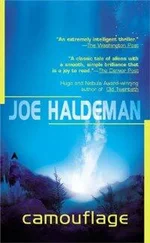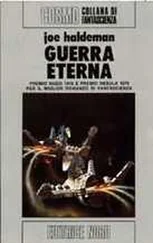Of course, Mars would test me on Mars. I knew that and didn’t think about it.
School was absorbing but tiring. Part of it was that every professor was kind of a star—I suppose every subject, every department,picked its most dramatic teacher for the VR classes, but the net result was almost like being yelled at—“This led to the Hundred Years War—how long do you think that war LASTED?” “Look where potassium and sodium are on the Periodic Table—what does THAT suggest to you?” Socrates and Plato getting it on, more than I wanted to know about student-teacher relationships. And could I have just one subject that’s not supposed to be the most important thing in the world? I should’ve taken plumbing.
Actually, the stories and plays in the literature course all promise to be interesting, no surprise, since that has always been the most enjoyable part of school. It doesn’t have any exams, either, just essays, which suits me.
I didn’t want to major in lit, though. I couldn’t see myself as a teacher, and I don’t think anybody else gets paid to read the stuff for a living. I didn’t have to choose a major for a couple of years. Maybe I could become the first Martian veterinarian. Wait for some animals to show up.
Something I would never have predicted was that the virtual-reality classrooms smelled more real than our real spaceship. If someone was chewing gum or eating peanuts near where you were “sitting,” it was really intense. Our air aboard the John Carter was thin, and it circulated well. When you peeled the plastic off a meal, you could smell it for a few seconds, but then it was pretty much gone, and a lot of the flavor as well.
Roberta and Yuri were also starting college, though in Yuri’s case it was more like a practical conservatory. Most of his courses were music. (I wondered how the time lag was going to affect that. When I suffered through my first piano lessons in grade school and middle school, I cringed in anticipation of the whack-whack-whack Ms. Varleman would make with her stick on the side of the piano whenever I lagged behind. I might have liked learning piano if the teacher was twenty-five minutes away!)
My life settled into a fairly busy routine. Classes and homework and chores and exercise periods. A blood test said I was losing calcium, and so my forty-five-minute exercise requirement went up to ninety minutes; two hours if I could schedule it. Hard to beat the combination—what else is both tiring and boring for two hours?
Actually, I could read or do limited VR while I was biking or rowing. It’s kind of fun to row down the streets of New York or Paris. You do get run over a lot, but you get used to it.
Routine or no routine, the possibility of disaster is always in the back of your mind. But you always think in terms of something dramatic, like an explosion on board or a huge meteoroid collision. When it did happen, nobody knew but the pilot.
We had sprung a leak. On the cube, that would be air shrieking out, or at least whistling or hissing. Which would be kind of nice, because then you could find it and put a piece of duct tape over it. Ours was seeping out silently, and we didn’t have too long to find the problem.
Paul put a message up on every screen, a strobing red exclamation point followed by WE ARE LOSING AIR! That got almost everybody’s attention.
We were losing about a half of one percent a day. We were still four months away from Mars, so the oxygen would be getting pretty thin if we didn’t fix it.
It was easy enough to find the general area of the leak. Every part of the ship could be closed off in case of emergency, so Paul just had us close up each section of the ship, one at a time, for about two hours. That was long enough to tell whether the pressure was still dropping.
First we closed off Pod A, where I lived, and I was relieved to find it wasn’t there. It wasn’t in Pod B, either, nor the solar-storm radiation shelter. It wasn’t the zero-gee center room, which basically left the lander. That was bad news. As well as being the vehicle that would get us to the Martian surface, that was where all the pilot’s instrumentation and controls were. We couldn’t very well just close it off for the next three months, then refill it with air for the trip down.
In fact, though, we wound up doing a version of that. First, Paul tried to find the leak with a “punk”—not like Granddad’s ancient music, but a stick of something that smoldered. The smoke should have led us to the leak. It didn’t, though, which meant we didn’t have a simple thing like a meteor (“micrometeoroid,” technically) hole. A seam or something was leaking, maybe the port that the pilot looked through, or the air lock to the outside.
Of course there was also an inside air lock, between the lander and the rest of the ship, and that gave us the solution. Paul didn’t have to live in the lander; he just checked things every now and then. In fact, he could monitor all the instruments with a laptop thing, from anywhere.
So although it made him nervous—not being able to run things from the pilot’s chair—we closed off the lander and just let it leak. If Paul had to go in there every day or two, he could put on a space suit and go through the air lock.
It made some of us nervous, too, like being cargo in a ship without a rudder. Okay, that was irrational. But we’d already had one emergency. What if the next one called for immediate action, but Paul had to suit up, waiting for the air lock to cycle through? That took about two minutes.
In two minutes we covered almost a thousand miles. A lot could happen. And there weren’t any space suits for the rest of us.
13
VIRTUAL FRIENDS AND FOES
I was not the most popular girl in my classes—I wasn’t in class at all, of course, except as a face in a cube. As the time delay grew longer, it became impossible for me to respond in real time to what was going on. So if I had questions to ask, I had to time it so I was asking them at the beginning of class the next day.
That’s a prescription for making yourself a tiresome know-it-all bitch. I had all day to think about the questions and look stuff up. So I was always thoughtful and relevant and a tiresome know-it-all bitch. Of course it didn’t help at all that I was younger than most and a brave pioneer headed for another planet. The novelty of that wore off real fast.
Card wasn’t having any such problems. But he already knew most of his classmates, some of them since grade school, and was more social anyhow. I’ve usually been the youngest in class, and the brain.
I was also a little behind my classmates socially, or a lot behind. I had male friends but didn’t date much. Still a virgin, technically, and when I was around couples who obviously weren’t, I felt like I was wearing a sign proclaiming that fact.
That raised an interesting possibility. I never could see myself still a virgin five years from now. I might wind up being the first girl to lose her virginity on Mars—or on any other planet at all. Maybe someday they’d put up a plaque: “In this storage room on such-and-such a date…”
But with whom? I couldn’t imagine Yuri tearing himself away from the keyboard long enough to get involved. Oscar and Murray seemed like such kids, though once they reached college age, that might be different.
There would be plenty of older men on Mars, who I’m sure would be glad to overlook my personality defects and lack of prominent secondary sexual characteristics. But thinking of an older man that way made me cringe.
Well, the next two ships would also be made up of families. Maybe I’d meet some nice Aussie or a guy from Japan or China. We could settle down on Mars and raise a bunch of weird children who ate calcium like candy and grew to be eight feet tall. Well, maybe not for a few generations.
Читать дальше
